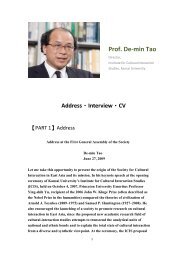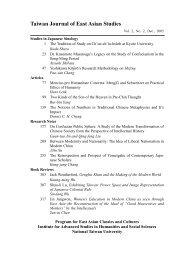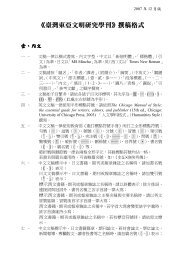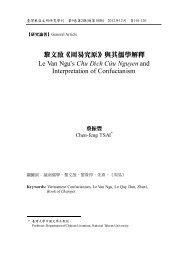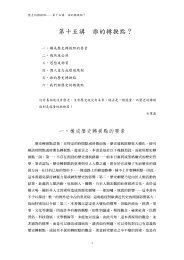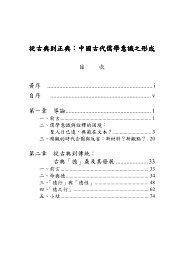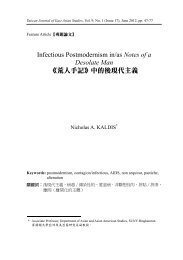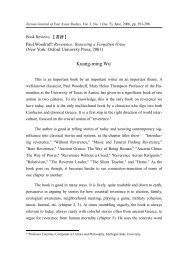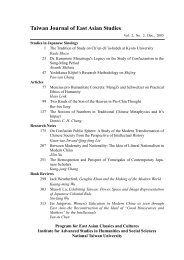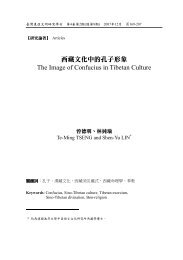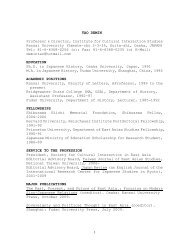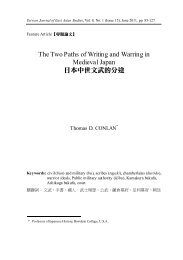臺灣東亞文明研究學刊 - 東亞經典與文化研究計畫 - 國立臺灣大學
臺灣東亞文明研究學刊 - 東亞經典與文化研究計畫 - 國立臺灣大學
臺灣東亞文明研究學刊 - 東亞經典與文化研究計畫 - 國立臺灣大學
Create successful ePaper yourself
Turn your PDF publications into a flip-book with our unique Google optimized e-Paper software.
240 Taiwan Journal of East Asian Studies, Vol. 4, No. 2 (Iss. 8), Dec., 2007<br />
the free flow of labour and capital. For him, the monarchies of a free commercial<br />
Europe would become naturally pluralistic politically, and with the civilising effects<br />
of commerce, pluralism would foster that spirit of emulation on which civil and<br />
international peace depended.<br />
Fletcher and Hume wrote as Scots who shared their contemporaries sense that<br />
enlightened Scotland was now a modern Athens. It was a potent image. For all its<br />
culture, Athens had been unable to withstand the forces of imperial Rome.<br />
Nevertheless, it had provided its new imperial masters with the philosophers and<br />
philosophies that Rome had been unable to provide for itself and it was these that<br />
had provided the empire with the means of self-understanding. Fletcher and Hume<br />
wrote in the hope that they, like the Athenians, would be able to supply their<br />
imperial masters with a new philosophical understanding of the world they now<br />
dominated. It was this that encouraged them to write as Europeans who wanted to<br />
set the problems of the English state and its provinces in a European setting. For<br />
this sense of Europeaness was to be fundamental to theirs and post-Union<br />
Scotland's sense of national identity.<br />
xvi



